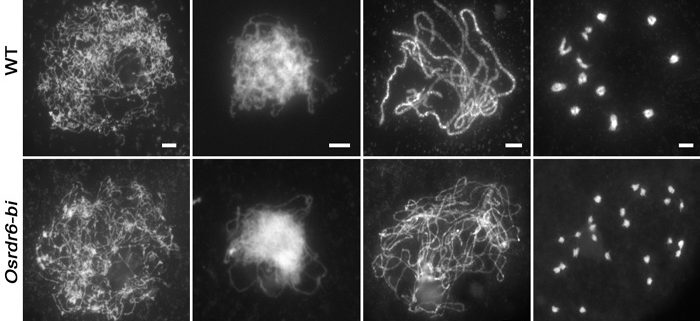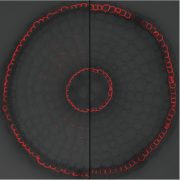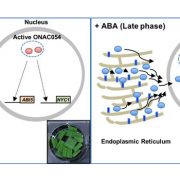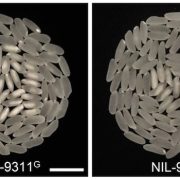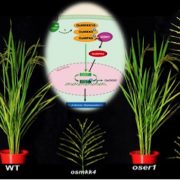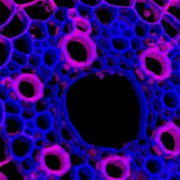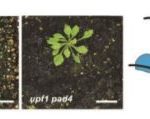Oryza sativa RNA-dependent RNA polymerase 6 modulates rice meiosis
Liu et al. connect small RNA biogenesis and meiotic recombination by examining RNA-dependent RNA polymerase 6. The Plant Cell https://doi.org/10.1105/tpc.20.00213
By Changzhen Liu, Yi Shen and Zhukuan Cheng
Background: Meiosis is a specialized cell division that takes place in sexually reproducing eukaryotes and homologous recombination during meiosis increases diversity. During meiosis, homologous recombination is initiated by programmed DNA double-strand break (DSB) formation. Oryza sativa RNA-dependent RNA polymerase 6 (OsRDR6) plays important roles in small RNA biogenesis, which is essential for rice development and virus defense. However, its role in meiosis is largely unknown.
Questions: Based on the importance of OsRDR6 in rice, we asked whether OsRDR6 is necessary for rice meiosis and what kind of phenotype would be caused by functional defects of OsRDR6.
Findings: In our study, we identified a new allele of OsRDR6. By studying the phenotype of this allele, we reveal that OsRDR6 is crucial for meiotic DSB formation, which is a prerequisite for homologous recombination and a necessary event for acquiring genetic diversity. The disruption of OsRDR6 causes abnormal biogenesis of small RNAs. In particular, the increased 24-nt small RNA levels likely lead to the down-regulation of hundreds of genes, including three DSB formation-related genes, P31comet, OsSDS and CRC1. OsRDR6 may mediate meiotic DSB formation by modulating the expression of P31comet, CRC1 and OsSDS. Our study enriches the understanding of OsRDR6 biological functions and may shed light on the basic role of small RNAs in meiosis.
Next steps: The specific mechanism by which OsRDR6 regulates P31comet, CRC1 and OsSDS expression is unclear and will require more detailed studies.


